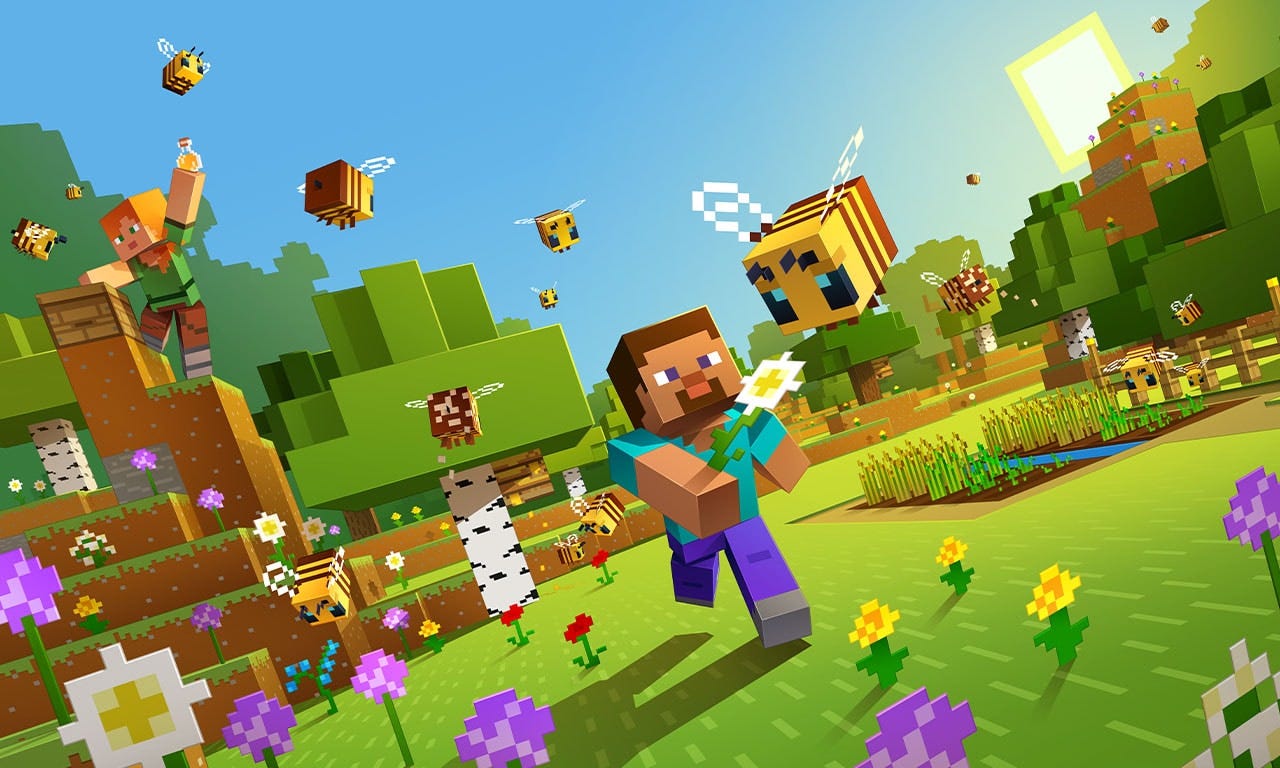Science Shorts: Video games in research (Apr. 2025)
Gaming can help treat underlying health conditions
Hello JOMT Reader!
Just yesterday, the long-awaited video game category (thanks to
’s daily calls) was announced by Substack. It’s not quite what I was expecting, as I still can’t choose “video games” as a category for Just One More Turn, but maybe that’s coming next? We might still need those calls!Today, I want to highlight none other than
who writes . He’s been making daily calls for a video game category (we’ll probably need more!) and brings news from around the gaming industry through weekly posts. It’s nice to get a tasting menu portion of news in the industry without having to go search for it myself! Thank you for all the curating that you do!
TL;DR
Needing to visit the hospital can be stressful, especially for those suffering from anxiety. But it isn’t just the patient — that stress and anxiety can affect caregivers as well. So researchers in Germany developed a cooperative VR game that can be played by kids and their parents to see if they could help reduce the stress and anxiety.
Read the article here: Cooperative Virtual Reality Gaming for Anxiety and Pain Reduction in Pediatric Patients and Their Caregivers During Painful Medical Procedures: Protocol for a Randomized Controlled TrialInternet gaming disorder is a growing but poorly understood public health concern. Most of the treatments used now borrow from other addiction-type disorders, which don’t always work. A team of researchers in South Korea created a game to treat internet gaming disorder.
Read the article here: Mindfulness-Based Cognitive Therapy-Game: An Ironic Way to Treat Internet Gaming DisorderWe’re only starting the scratch the surface of what’s possible using video games to treat different health conditions. But why and how it works, and more importantly, how it can be incorporated as a regular part of care, is still being researched. This team looked at using Minecraft to support the care for kids with autism.
Read the article here: Gaming in the intervention and support process: A realist evaluation of a gaming-based programme
VR for anxiety and pain

Link to article: https://www.researchprotocols.org/2025/1/e63098
Title: Cooperative Virtual Reality Gaming for Anxiety and Pain Reduction in Pediatric Patients and Their Caregivers During Painful Medical Procedures: Protocol for a Randomized Controlled Trial
The short
A cooperative VR game, played by kids and their parents, has the potential to reduce anxiety and pain before medical procedures.
The long
German researchers are testing whether their cooperative VR game, Sweet Dive VR, could reduce pain and anxiety for kids who have to go through painful medical procedures. They are also testing whether Sweet Dive VR can foster well-being for both patients and their caregivers playing the game. They don’t have any results yet but have a bunch of hypotheses about the effect Sweet Dive VR will have on both patients and caregivers.
Why it matters
We’ll always have drugs to fall back to for anxiety and pain. This team is attempting to break our dependence on drugs by using VR games instead. Perhaps even more important is that this game is meant to foster well-being for caregivers as well. Being an active part of the process, even if it is playing a cooperative VR game, may help to bring comfort for both patients and their caregivers.
Games to treat gaming disorder
Link to article: https://www.jmir.org/2025/1/e65786
Title: Mindfulness-Based Cognitive Therapy-Game: An Ironic Way to Treat Internet Gaming Disorder
The short
Playing video games might be a surprising way to treat gaming disorder.
The long
Internet gaming disorder was recently defined as a condition and included in various manuals for diagnosing psychological disorders. But research in the field suggests that the true cause of internet gaming disorder might be conditions like depression or post-traumatic stress disorder. With this in mind, researchers in South Korea developed a game to help patients with internet gaming disorder find other positive ways to cope with their underlying condition.
Why it matters
The researchers don’t treat internet gaming disorder as “just another addiction”. They recognize that internet gaming disorder is a symptom triggered by other types of psychological distress. Instead of treating the symptom, these researchers have developed a game to treat the cause, by offering other strategies to cope with their distress.
Minecraft for autism
Link to article: https://journals.sagepub.com/doi/full/10.1177/13623613251320542
Title: Gaming in the intervention and support process: A realist evaluation of a gaming-based programme
The short
Why and how does Minecraft work to help those with autism?
The long
A common misconception about people with autism is that they somehow lack the skills required to socialize. There is mounting evidence that people with autism experience socialization differently than those without autism, which often leads to misunderstandings. Researchers of this study interviewed people with autism who used Minecraft as training grounds for social skills development.
Why it matters
Games aren’t just for entertainment anymore; they can serve as a means to train skills that could be used in the real world. This study showed that it’s not just physical skills, like hand-eye coordination and reaction time, but transferable skills like communication that can be practised using video games. Maybe one day, school will be one big game!
If you liked what you read, please consider giving this post a like and sharing it with your community!







So interesting as always. Many ideas and studies I have never heard of. I can relate to the gaming disorder (not being online but generally) in terms of escapism during difficult times. It is interesting that the "addiction" could just be a side effect as is often the case.
Interesting that internet gaming disorder is a recognised problem. The paper states it's "Patients with gaming disorder tend to prioritize gaming above all else, lose control over their gaming behavior, and exhibit an inability to voluntarily stop."
How do they diagnose it?